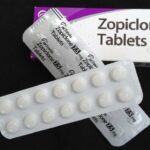Does Spironolactone Cause Weight Gain?

In general, side effects are common with almost any medication. What’s less common are side effects that can complicate your recovery from the very condition you’re looking to treat. Case in point: medications that can cause weight gain.
Research suggests a growing number of people take drugs that cause weight gain — most notably, for conditions that are exacerbated by excess weight. Drawing on data from the 2017-2018 National Health and Nutrition Examination Survey (NHANES), a recent study published in Obesity found that 1 in 5 U.S. adults take at least one medication that causes weight gain.
As side effects go, weight gain may not seem like a big deal, especially if you’re treating a life-threatening condition. But in less serious scenarios, the added weight can compromise your overall health. People with obesity are at increased risk for many serious diseases and health conditions, including heart disease, stroke, and death, according to the Centers for Disease Control and Prevention (CDC). Even modest weight gain — we’re talking five to 20 pounds — can have negative health effects, one study shows.
What is Spironolactone?
Spironolactone is a medication used to treat certain patients with hyperaldosteronism (the body produces too much aldosterone, a naturally occurring hormone); low potassium levels; heart failure; and in patients with edema (fluid retention) caused by various conditions, including liver, or kidney disease. It is also used alone or with other medications to treat high blood pressure. Spironolactone is in a class of medications called aldosterone receptor antagonists. It causes the kidneys to eliminate unneeded water and sodium from the body into the urine but reduces the loss of potassium from the body.
How spironolactone is used
Spironolactone comes as a tablet and suspension (liquid; Carospir) to take by mouth. It usually is taken once or twice a day. Take spironolactone suspension consistently either with food or without food each time. Take spironolactone at around the same time(s) every day. Follow the directions on your prescription label carefully, and ask your doctor or pharmacist to explain any part you do not understand. Take spironolactone exactly as directed. Do not take more or less of it or take it more often than prescribed by your doctor.
Shake the oral suspension well before each use to mix the medication evenly.
Your doctor may start you on a low dose of spironolactone and gradually increase your dose.
Spironolactone tablets and suspension release the medication differently in your body and cannot be substituted for one another. Only take the spironolactone product prescribed by your doctor and do not switch to a different spironolactone product unless your doctor says that you should.
Spironolactone controls high blood pressure, edema, heart failure, and hyperaldosteronism but does not cure these conditions. It may take about 2 weeks or longer before the full effect of spironolactone occurs. Continue to take spironolactone even if you feel well. Do not stop taking spironolactone without talking to your doctor.
Does spironolactone cause weight gain?
No, spironolactone does not cause weight gain. In fact, taking spironolactone enables your body to get rid of excess fluid, this can sometimes lead to weight loss. Studies have also shown that spironolactone improves glucose and lipid metabolism by ameliorating hepatic steatosis and inflammation and suppressing enhanced gluconeogenesis induced by high-fat and high-fructose diets. Gluconeogenesis is the metabolic pathway your body uses to turn non-glucose sources into glucose for energy — a life-saving pathway. But it also can keep you from losing fat, gaining muscle, and burning ketones.
What other side effects can Spironolactone cause?
Spironolactone may cause drowsiness. You shouldn’t drive, use machinery, or do similar tasks that require alertness until you know how this drug affects you.
This drug can also cause other side effects.
More common side effects
The more common side effects that can occur with spironolactone include:
• diarrhea and abdominal cramping
• dizziness
• drowsiness
• headache
• high potassium levels
• irregular menstrual cycles or bleeding after menopause
• itching
• leg cramps
• nausea and vomiting
If these effects are mild, they may go away within a few days or a couple of weeks. If they’re more severe or don’t go away, talk with your doctor or pharmacist.
Serious side effects
Call your doctor right away if you have serious side effects. Call 911 if your symptoms feel life-threatening or if you think you’re having a medical emergency. Serious side effects and their symptoms can include the following:
• Allergic reactions. Symptoms can include:
o skin rash
o hives
o fever
o trouble breathing
o swelling of your lips, mouth, tongue, or throat
• Electrolyte and/or fluid problems. Symptoms can include:
o mouth dryness
o extreme thirst
o extreme weakness and tiredness
o fast heart rate and dizziness
o not being able to urinate
• Dangerously high potassium levels. Symptoms can include:
o muscle weakness
o not being able to move your legs and arms
o extreme tiredness
o tingling or numb feeling in your hands or feet
o slow heart rate
• Breast enlargement (gynecomastia). Symptoms can include:
o growth of breast tissue in males and females
• Severe skin reactions. Symptoms can include:
- redness, blistering, peeling, or loosening of your skin, including inside of your mouth
If you experience a serious side effect, you or your doctor may send a report to the Food and Drug Administration’s (FDA) MedWatch Adverse Event Reporting program online (http://www.fda.gov/Safety/MedWatch) or by phone (1-800-332-1088).





